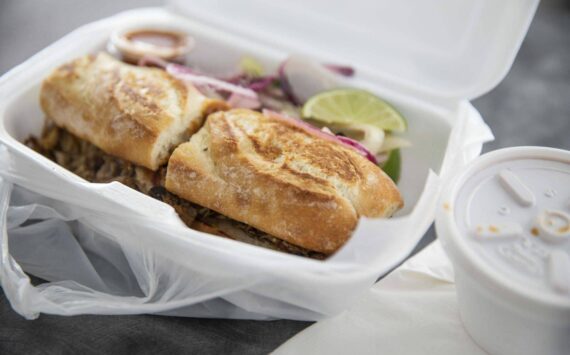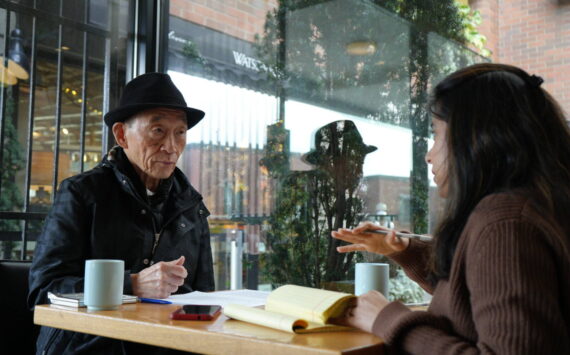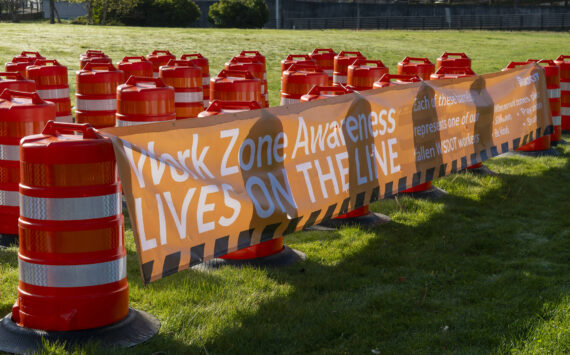Gurminder Kahlon has been driving a taxi in Seattle and to and from Sea-Tac Airport for almost 25 years.
Unlike many taxi drivers, he owns his cab outright; he bought the car and its licenses—which allow him to drive professionally in both Seattle and King County—in 2001 for $100,000. Today, in exchange for the hefty investment, he works 12-hour shifts most days of the week, and figures he brings home about $10 or $11 per hour. It’s not nearly enough to support his wife and daughter, who is in medical school. It’s not nearly enough to get by, as a family, anywhere near Seattle.
And he fears it’s about to get worse.
A few weeks ago, the Port of Seattle, the public entity in charge of Sea-Tac Airport, quietly awarded a new exclusive contract to Eastside for Hire to operate as the airport’s onsite taxi service—the only taxi service allowed to pick up passengers as they get off a plane. And that contract, some drivers contend, leaves them precious little to live on.
For the past five and a half years, airport service has been the purview of Puget Sound Dispatch, also known as Yellow Cab, for whom Kahlon currently works. Yellow Cab lost the contract to Eastside for Hire in an open bidding process through which the Port essentially auctions access to lucrative airport business. Port of Seattle public-affairs manager Perry Cooper says the bidding process, launched in 2010 per a state auditor’s recommendation, allows the Port to better factor in things like customer service, environmental standards, safety and background checks, and the overall reliability of the taxis when awarding the contract. That said, money plays a big role in determining who wins.
Public documents show Eastside for Hire guaranteeing the Port a minimum of $22.5 million over the five-year life of the contract—the second-highest of all bidders—and projecting actual revenues to the Port to be at least $36.2 million. That money will come directly out of fares—starting at at least $7 and growing to $9 per trip from Sea-Tac to Seattle, which runs about $42. Today, Yellow Cab drivers pay the Port about $5.70 per trip, which is stacked atop many other taxes and fees that work out to nearly 45 percent of their income. Eastside for Hire manager Samatar Guled says $5.70 is just a calculation, though, based on the current system (Yellow Cab pays the Port a percentage of gross revenues, not a flat fee); a flat fee might work out better for drivers because they’re on the hook only if they actually get a trip. “If you don’t pick up, you don’t pay,” he says. “That’s a major distinction.” Compared to the other bidders, he adds, “We bid reasonably.”
Still, research suggests that the Port of Seattle is unusual in the $7–$9 flat fee per trip it plans to charge drivers. In Phoenix, Philadelphia, and Washington, D.C., according to a report that the Port commissioned, that fee is $1, $1.50, and $2.55, respectively.
But at Sea-Tac, this new contract is business as usual, insists the Port of Seattle’s Cooper. It’s not a requirement; it’s the open market. The Port says, “’Here’s the opportunity. You tell us what you wanna bid for.’” He adds that higher bids might seem “a fair price in [bidders’] eyes” given the massive amount of growth Seattle and its airport have seen in a few short years. Nearly 44 million passengers came through the airport in 2015—a 13 percent increase from the year before.
However, dispatch companies are the ones who make the bids, not drivers. Given that the airport is one of the few places where taxi drivers can still make any money—with Uber and Lyft having significantly cut into their business within Seattle—the new contract may feel, to some beleaguered drivers, like the final blow. When he looks at the numbers, says driver Aamar Khan, “It doesn’t even make sense to work at the airport … or be in the cab business anymore.”
“What this [bid] does, essentially, is it rewards somebody by taking money out of drivers’ pockets” and delivering it to the Port, says Leonard Smith, organizing director at Teamsters Local 117, which represents local taxi drivers, primarily Yellow Cab drivers. “I definitely believe drivers’ wages are not going to be anywhere near what they are now,” adds Sheila Stickel, a consultant for Yellow Cab who’s been crunching the numbers for months.
Guled begs to differ. “We’re a driver-owned company,” he says. “We care about drivers’ income. Most of us drive on a daily basis. We literally walk the walk the drivers walk every day. Whatever they are paying right now … it’s not going to be more than that.”
Like Uber and Lyft drivers, taxi drivers are independent contractors. A new contract doesn’t mean, therefore, that Eastside for Hire drivers will move in to the airport and push out Yellow Cab drivers; it means the individuals who’ve made investments in the cars and licenses necessary to work at the airport will have to make the choice to repaint their vehicles and switch over to Eastside—or stop driving at the airport.
Smith compares the whole situation to indentured servitude. Taxi drivers, he notes, are not a class of workers for whom it’s easy to find another job. Many have made huge investments—in car leases, in dispatch-fleet participation fees, in city and county licenses—and are in colossal amounts of debt that they expect the work will return to them over a number of years. To turn around and just “get another job” is, for many taxi drivers, to go broke.
“They’re not getting another job,” says Smith. “This is their business … the business they invested in.” The Port of Seattle, he argues, has “created an environment where [drivers] have to go bankrupt. When you start to look at it that way, it’s criminal.”
Paying more money for access to the airport might pencil out if taxi riders there were expected to grow. According to the Port, they are: With airport traffic at an all-time high, the Port projects that more people will be taking taxis to the city, and required bidders to submit proposals with bigger fleets than currently operate at Sea-Tac. Yet since April, when transportation network companies—aka Uber and Lyft—got the green light to work at Sea-Tac, business for traditional taxis has plummeted (it dropped almost 10 percent in the first two months).
“It just doesn’t add up,” says a longtime taxi driver who asked his name not be used lest it impact his job prospects. “They’re really squeezing us. [These are] just like real, poverty-wage jobs. I don’t know what people [at the Port] are thinking … they’re driving us to the bottom.”
Samatar Guled says he’s well aware of the Uber effect and is factoring that into the equation. Eastside is working out partnerships with Uber and with local hotels to help bolster drivers’ income. “It’s very clear that if we don’t change as an industry,” he says, “we’re not going to survive.”
Strangely, during the bidding process, the Port did make a concerted effort to gather specific information from various bidders regarding driver income. The effort was made “to ensure Port priorities related to driver equity and small-business opportunities were addressed,” wrote Cooper via e-mail. But that information was explicitly not used to evaluate bids; it “was informational only. It was not used for any scoring of the bidders. The Port was comfortable with the range of responses and continued with the RFP process.”
Granted, there are still many unknowns. Eastside for Hire won the bid, but the specifics of a contract won’t be inked until shortly before October 1, the day the company is expected to begin service at Sea-Tac. Guled says he can’t go into details while Eastside is in negotiations, but assures drivers that the rumors they’ve been hearing aren’t true; the “overall cost [to drivers] is going to be less than what Yellow is charging.”
In the face of all this uncertainty, though, drivers are nervous—and may be gearing up for a fight. “They are part of our public transportation system in the City of Seattle and they are tired of getting screwed,” Smith says. “I don’t think they’re gonna sit by and let themselves get screwed further.”
sbernard@seattleweekly.com








